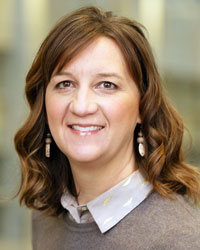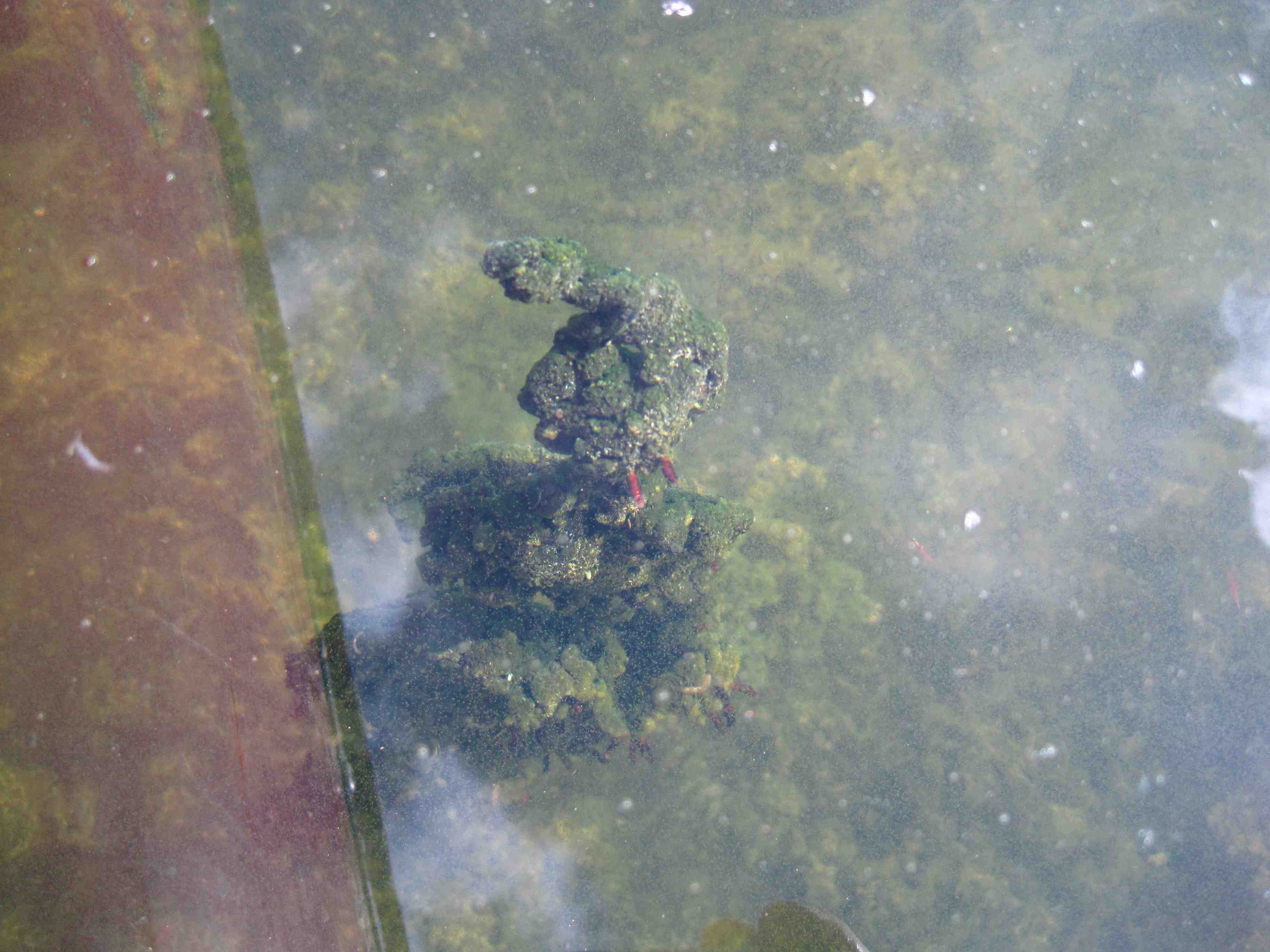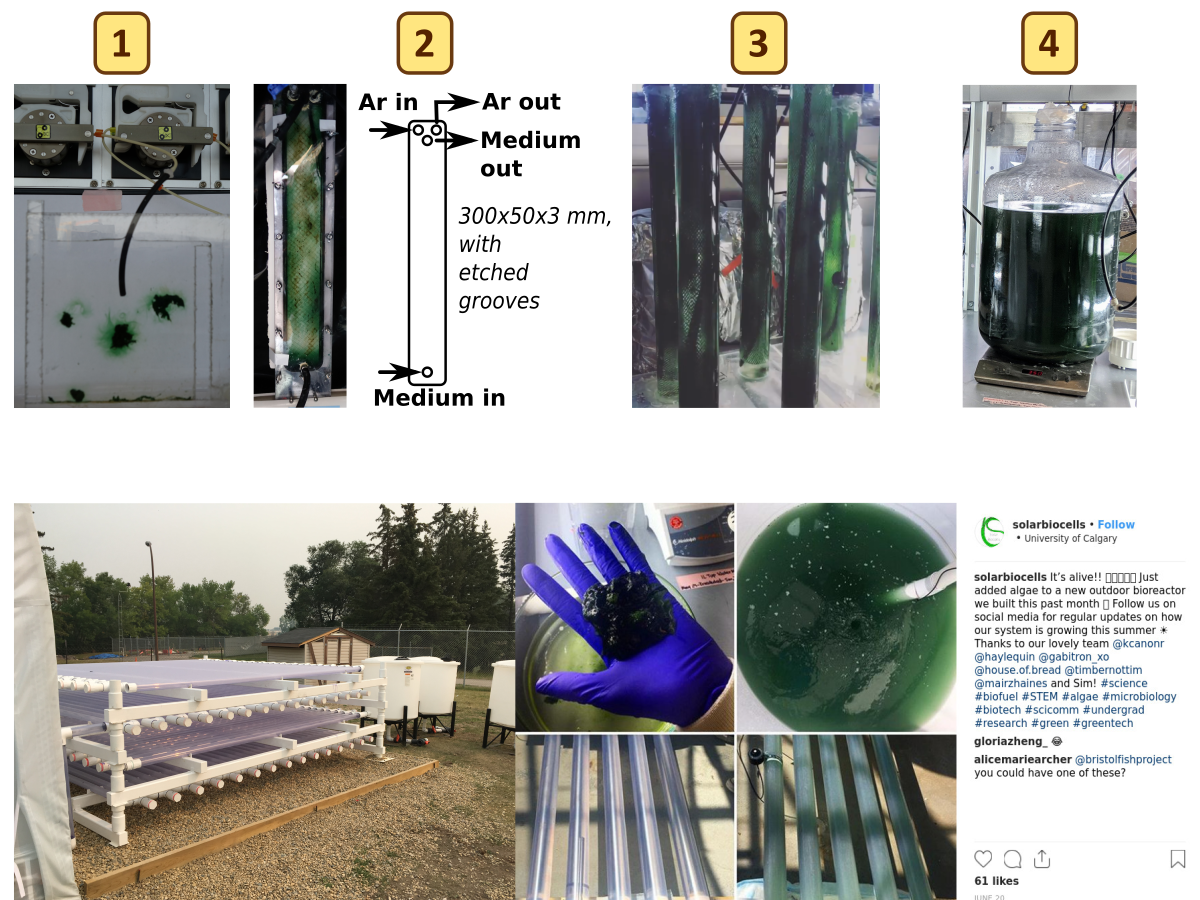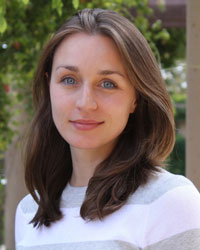Home / Symposium
Pioneers of Metagenomics - Environment and Health 2019
Click the button to reserve a seat for the symposium. The workshop attendees do not need to register.
The Minisymposium with invited speakers will be held from 13:00 - 16:30 on August 23, 2019 Location: EEEL 161, EEEL building, 750 Campus Drive NW, University of Calgary

Dr. Josh D. Neufeld
Professor, Department of Biology
University of Waterloo, Canada
Title: Through a glass (less) darkly: resolving wastewater nitrification through metagenomics
Abstract: Nitrification, the oxidation of ammonia to nitrate via nitrite, is an important process in wastewater treatment plants. Rotating biological contactors (RBCs) represent the tertiary treatment system for municipal waste from Guelph, Ontario. Within these RBCs, continual exposure to gradients of relatively low ammonia concentrations shape biofilm microbial communities that contain all known aerobic nitrifiers: ammonia-oxidizing archaea, ammonia-oxidizing bacteria, the newly discovered comammox bacteria, and strict nitrite oxidizers. Complementing traditional activity-based assays, we have used a suite of molecular methods, including metagenomics, to characterize nitrifier population sizes and diversity within all stages of multiple RBC trains and timepoints. This talk will highlight how metagenomics greatly expands our knowledge of RBC nitrifiers and suggests the presence of novel bacteria that contribute to wastewater treatment. Despite progress enabled by metagenomics, comprehensive characterization of RBC biofilm remains a challenge due to the magnitude of diversity that exists in these systems, as in many environments. In order to help circumvent these limitations, this talk will highlight how GenOme Resolution by Density-gradient Isopycnic ANalysis (GORDIAN) offers more comprehensive metagenomic analysis of RBC biofilm samples, especially by targeting genomes from nitrifiers and rare biosphere taxa.
Biography: Josh Neufeld is a Professor and University Research Chair in the Department of Biology at the University of Waterloo, Canada. He received his B.Sc. and M.Sc. in Microbiology from the Macdonald Campus of McGill University, a Ph.D. in Microbiology at the University of British Columbia, and a postdoctoral fellowship at the University of Warwick in the UK. Josh’s research combines molecular and cultivation approaches to study microbial communities in terrestrial, aquatic, and host-associated habitats with the goal of recovering and exploiting the “microbes that matter”. Josh serves on the Editorial Boards for Applied and Environmental Microbiology, Environmental Microbiology, FEMS Microbiology Ecology, and is an Editor for mSystems and The ISME Journal.

Dr. Laura Sycuro
Assistant Professor, Department of Microbiology, Immunology and Infectious Diseases
Cumming School of Medicine, University of Calgary, Canada
Title: Defining the vaginal microbiome with genome-resolved metagenomics: Have we opened Pandora’s Box?
Abstract: Each year, preterm birth (PTB) affects approximately 15 million pregnancies worldwide and is the second largest cause of neonatal deaths. Current options for preventing spontaneous preterm birth (sPTB) are limited to the scant 9% of sPTBs with evidence of cervical shortening. Modulation of the microbiome could provide a new avenue for prevention, as it is estimated that maternal microbes are responsible for 20–60% of sPTBs. Several large prospective studies have now linked a limited number of species in the vaginal microbiota to PTB. Many of these microorganisms have also been detected in the amniotic fluid or fetal membranes of women experiencing preterm birth, but the mechanisms by which these ascending infections occur remain unknown. Since many vaginal bacteria are highly fastidious or uncultivated, we are working to better define the phylogeny and function of bacteria contributing to preterm birth through genome-resolved metagenomics. I will illustrate how these studies have unmasked a surprising array of uncultivated species, some of which were not predicted by 16S rRNA gene sequencing. I will furthermore discuss our on-going studies of genes that are orthologues of well-known virulence factors, suggesting certain vaginal organisms are well-equipped to survive in the immunologically protected upper genital tract. With preliminary findings that suggest distantly related PTB-associated bacterial species have conserved mechanisms of ascension and evasion, we are exploring the therapeutic potential of blocking these activities before they trigger early labour.
Biography: Dr. Sycuro is an Assistant Professor and founding member of the International Microbiome Centre at the University of Calgary. Her MSc/PhD dual-degree training in Epidemiology and Molecular Biology at the University of Washington was supported by a National Science Foundation Graduate Research Fellowship. Upon completing her postdoc at Fred Hutchinson Cancer Research Center, Dr. Sycuro focused her independent research program on the microbiome of women and their neonates. Serving as Co-Principal Investigator of the Alberta BLOOM birth cohort initiative, she was recently honoured as a CIHR Early Career Investigator in Maternal Health. In 2018, Dr. Sycuro was also appointed Functional Omics Lead for the IMPACTT Pan-Canadian Microbiome Core. Her work using genetic and genomic approaches to understand how members of the human microbiota cause disease has been published in PLoS Pathogens, the Journal of Infectious Diseases, and Cell.

Dr. Marc Strous
Professor, Department of Geoscience, Faculty of Science
University of Calgary, Canada
Title: Proteomics and stable isotopes to unravel the ecology of microbial mat microbiomes
Abstract:

 Soda lakes are among the most alkaline natural environments on earth, as well as among the most productive aquatic ecosystems known. This productivity is generated by calcifying microbial mats similar to ancient stromatolites. Soda lakes have contributed to global primary productivity on a massive scale in Earth’s geological past. Stress levels are extremely high, caused by high pH (>10), free radical activity (O2 > 500% air saturation, high levels of sunlight), and strong gradients in space and time. Yet, these mats are home to a globally dispersed microbiome of >2,000 species of bacteria, eukaryotes and viruses, many of them unstudied. Our research is addressing how we can explain the remarkable productivity and resilience of this signature community.
Soda lakes are among the most alkaline natural environments on earth, as well as among the most productive aquatic ecosystems known. This productivity is generated by calcifying microbial mats similar to ancient stromatolites. Soda lakes have contributed to global primary productivity on a massive scale in Earth’s geological past. Stress levels are extremely high, caused by high pH (>10), free radical activity (O2 > 500% air saturation, high levels of sunlight), and strong gradients in space and time. Yet, these mats are home to a globally dispersed microbiome of >2,000 species of bacteria, eukaryotes and viruses, many of them unstudied. Our research is addressing how we can explain the remarkable productivity and resilience of this signature community.
I will show how we are using proteomics, in combination with stable isotopes, to define the ecological niche of individual community members and discover exchange of metabolites between populations.

Ultimately we aim to use our growing insights to develop a process for capture and bioconversion of CO2 from air. Development of a sustainable, technically and economically feasible process to do just that, has been unsuccessful so far within prevailing biotechnology paradigms.
Biography: Marc Strous is a Professor of Microbiology and Campus Alberta Innovation Chair in Energy Bioengineering at the Department of Geoscience, University of Calgary. He obtained his PhD at Delft University of Technology (The Netherlands). In his previous research, conducted at Radboud University Nijmegen and the Max Planck Institute for Marine Microbiology in Germany, he discovered a series of “impossible” microbes, that reshaped our understanding of global nitrogen cycling and led to innovative technology for wastewater treatment. In Calgary, Strous is pursuing the microbiology and biogeochemistry of alkaline soda lakes and methane bioconversions in Alberta aquifers, in search of solutions to current environmental problems. He is also using and developing cutting edge metagenomics and proteomics technologies.

Dr. Carolina Tropini
Assistant Professor, SBME/Microbiology & Immunology, School of Biomedical Engineering
University of British Columbia,Canada
Title: Dynamics of microbiota communities during physical perturbation
Abstract: The consortium of microbes living in and on our bodies is intimately connected with human biology and deeply influenced by physical forces. Despite incredible gains in describing this community, and emerging knowledge of the mechanisms linking it to human health, understanding the basic physical properties and responses of this ecosystem has been comparatively neglected. Most diseases have significant physical effects on the gut; diarrhea alters osmolality, fever and cancer increase temperature, and bowel diseases affect pH. Furthermore, the gut itself is comprised of localized niches that differ significantly in their physical environment, and are inhabited by different commensal microbes. Understanding the impact of common physical factors is necessary for engineering robust microbiota members and communities; however, our knowledge of how they affect the gut ecosystem is poor. As a model of a biophysical perturbation, we are investigating how changes in osmolality affect the host and the microbial community and lead to mechanical shifts in the cellular environment. Osmotic perturbation is extremely prevalent in humans, caused by the use of laxatives, lactose intolerance, or celiac disease. In our studies we monitored osmotic shock to the microbiota using a comprehensive and novel approach, which combined in vivo experiments to imaging, physical measurements, computational analysis and highly controlled microfluidic experiments. By bridging several disciplines, we developed a mechanistic understanding of the processes involved in osmotic diarrhea, linking single-cell biophysical changes to large-scale community dynamics. Our results indicate that physical perturbations can profoundly and permanently change the competitive and ecological landscape of the gut, and affect the cell wall of bacteria differentially, depending on their mechanical characteristics.
Biography: Carolina Tropini conducted her Ph.D. in Biophysics at Stanford University. Her studies in the laboratory of Dr. KC Huang combined computational and experimental techniques to investigate bacterial mechanics and morphogenesis. During her graduate studies Carolina was the recipient of the Bio-X Stanford Interdisciplinary Graduate Fellowship and the Stanford Graduate Fellowship. In 2014 she received the James S. McDonnell Foundation Postdoctoral Fellowship Award and she joined the laboratory of Dr. Justin Sonnenburg at Stanford. During her post-doc, Carolina applied her background in biophysics to study the impact of physical perturbations on host-associated microbial communities living in the gut. Carolina is currently Assistant Professor at the University of British Columbia in the Department of Microbiology and Immunology and the School of Biomedical Engineering.